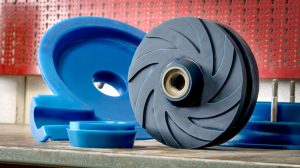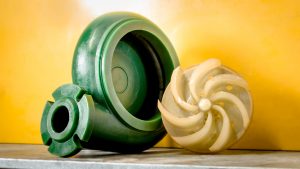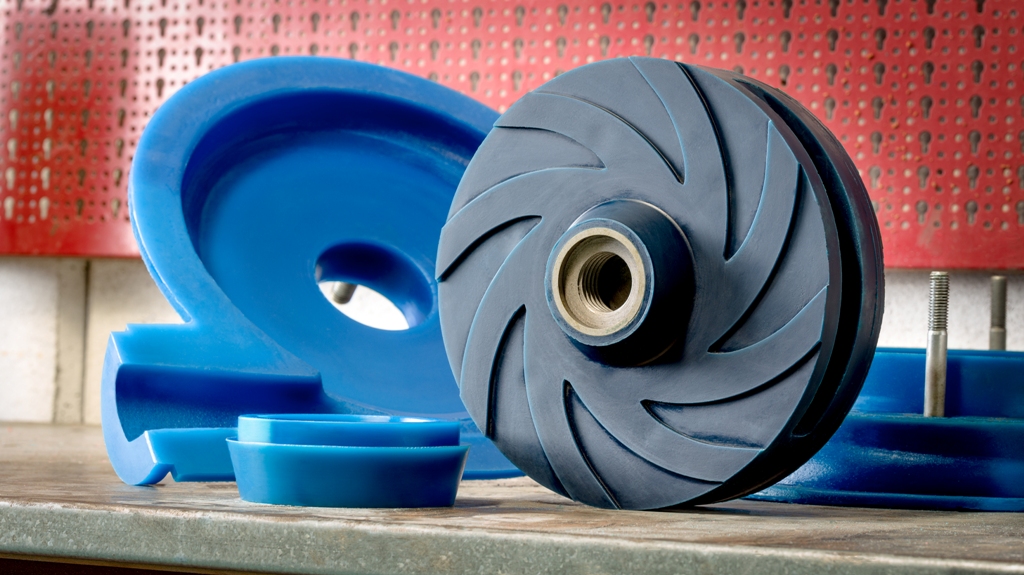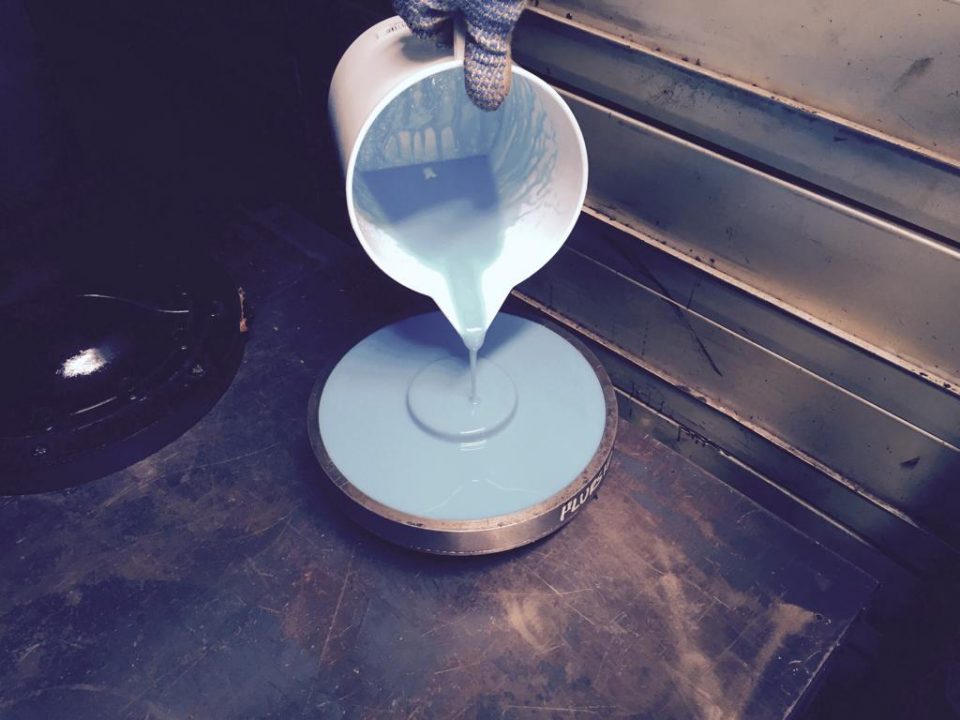Hot-cast polyurethan spare parts
Hot cast polyurethane spare parts represent a worthy alternative compared to new and expensive original ones made of rubber or other plastic materials for industrial machinery, thus allowing a relevant saving on upkeep costs.
As a matter of fact, original spare parts can be very expensive, while those made of hot cast polyurethane, suitably treated for their intended use, have long life over time at a competitive cost.
This is a valid consideration for the chemical sector as well as for the mining, paper, waste disposal, and electricity production plants and others.
In fact, some parts of a plant are often particularly subject to wear and tear due to various factors, such as abrasion, chemical aggression, direct exposure to sunlight and UV rays, and need to be replaced during scheduled maintenance periods.
Longer life, less downtime
Politec job is to replace original parts with spare parts that offer longer life and reduce the frequency of maintenance and plant downtime.
Polyurethane liners for coated pumps, whole polyurethane pumps, impellers, wear disks, profiles for conveyor belts, chain guides for biomass plants, are just some of the spare parts that we produce in hot-cast polyurethane.

Hot-cast polyurethanes compared to other polymers
Hot cast polyurethane hardness has an extraordinary range that variates from 20 Shore A to 85 Shore D, and chemical-physical resistance to a variety of aggressive factors when compared to other polymers and natural or synthetic rubbers.
Are you aware of the differences between thermoplastic polyurethanes and hot-casting?
Hot-cast polyurethane is successfully used in the chemical industry to replace mechanical spare parts with hardness of about 50 SH D originally built with UHMWPE (very high molecular weight polyethylene, characterized by strong corrosion resistance) on systems which employ hydrofluoric acid up to pH 1 and 60°C temperature.
In this specific use, polyurethane offered a much higher resistance to abrasion than UHMWPE.
Read more about it
Case history: polyurethane coated pumps and pumps made of polyurethane
A typical example of how to save money in the upkeep costs is the thermal power plants. Here, the desulphurization process requires highly abrasive resistant coated pumps to withstand the gyps powder running through them. Our compatible polyurethane pump liners make for the perfect alternative to rubber assuring better longevity and lower upkeep costs.
Thermal power plants produce electricity from different fuels: heavy oil, coal, and gas.
When heavy oil or coal is employed, it produces a by-product called Sulphur dioxide, which is an environmental pollutant that can’t be present in the fumes released into the atmosphere.
Enel and EP Power plants
For example, ENEL and EP Thermal power plants, to name a few, use a desulphurization plant in which Sulphur dioxide is converted into sulphuric acid, in step 1, and into Calcium sulfate (gypsum), in step two.
Then, the fluid, which contains an aqueous solution of Sulphuric acid at pH2, is pumped into a circuit through coated pumps able to resist abrasion, tearing, and chemical aggression.
The original spare parts proposed by the supplier of the plant, are made of an excellent quality rubber that has good chemical resistance and abrasion resistance properties, but poor resistance to tearing.
In order to enhance its performance, we have supplied hot-cast polyurethane spare parts, specifically formulated to withstand these conditions of use. They lasted up to three times longer than the original spare parts.

The advantages of Politec spare parts
1) The company receives spare parts in a short time. For deliveries following the first, the waiting times are even shorter
2) In case of emergency, we can produce and deliver spare parts within a few days from the customer’s request
3) Shutdown operations decrease, avoiding downtime loss.
4) Our spare parts offer a duration longer than the original ones.




